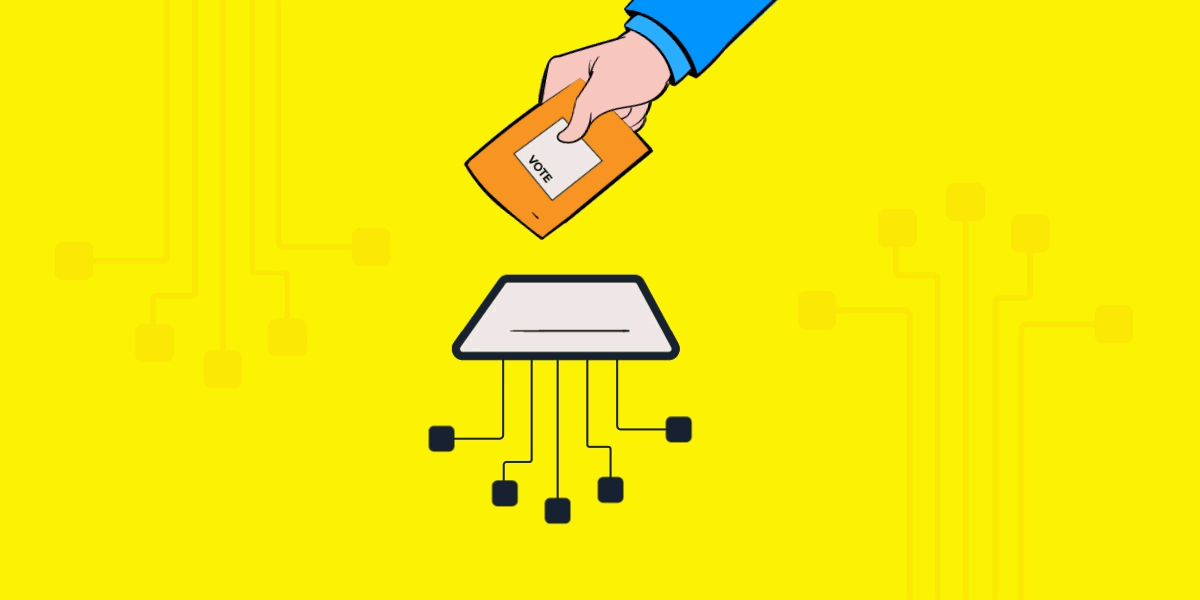
- June 15, 2024
- Samiran Mondal
- 0
Introduction
In an era where technological advancements are reshaping various sectors, the election process remains ripe for innovation. Blockchain technology, widely recognized for its role in cryptocurrencies, offers a groundbreaking approach to enhancing the integrity, transparency, and efficiency of elections. This article delves into how blockchain can revolutionize the electoral process, the benefits it brings, the challenges it faces, and real-world examples of its implementation.
How Blockchain Works in Elections
Decentralization and Security
Blockchain operates as a decentralized ledger that records transactions across multiple computers. This decentralization ensures that the data cannot be altered retroactively, providing robust security:
- Decentralized Voting Records: Votes are recorded on numerous nodes, making it virtually impossible to manipulate results without detection.
- Enhanced Security: Blockchain’s cryptographic nature ensures the immutability of votes once they are cast, safeguarding against tampering.
Transparency and Trust
Trust and transparency are paramount in elections:
- Public Ledger: Blockchain provides a transparent ledger where votes can be verified by anyone without compromising voter anonymity.
- Immutable Records: Each vote is timestamped and cannot be altered, enhancing the credibility and trustworthiness of the election results.
Efficiency and Accessibility
Blockchain can streamline the voting process, making it more accessible:
- Remote Voting: Secure online voting via blockchain allows voters to participate from any location, potentially increasing voter turnout.
- Rapid Results: Votes can be counted quickly and accurately, reducing the time required to announce results.
Benefits of Blockchain in Elections
Fraud Prevention
Blockchain’s transparency and security features significantly reduce the risk of electoral fraud. Each vote is independently verified and recorded in a tamper-proof manner, ensuring the integrity of the election process.
Enhanced Voter Confidence
The verifiable and immutable nature of blockchain voting records instills greater confidence among voters that their votes are accurately counted and that the election results are legitimate.
Increased Voter Participation
By enabling secure remote voting, blockchain technology can facilitate easier access for individuals in remote areas, expatriates, and those with disabilities, thereby increasing overall voter participation.
Challenges and Considerations
Technical Complexity
Implementing blockchain technology in elections requires a sophisticated technical infrastructure and expertise. Ensuring the system is both secure and user-friendly is essential for its success.
Digital Divide
Not all voters have access to the necessary technology or the internet. Addressing this digital divide is crucial for the inclusive adoption of blockchain voting systems.
Regulatory and Legal Issues
Adopting blockchain in elections necessitates careful consideration of existing legal and regulatory frameworks to ensure compliance with election laws.
Case Studies and Examples
Estonia
Estonia has been at the forefront of e-governance and has experimented with blockchain principles in its i-voting system. Although not entirely blockchain-based, their system incorporates features that enhance security and transparency, demonstrating the potential for broader blockchain adoption.
Sierra Leone
In 2018, Sierra Leone conducted a pilot blockchain-based election, marking a significant milestone in the practical application of this technology. The pilot demonstrated the feasibility of blockchain in enhancing electoral processes.
Conclusion
Blockchain technology presents a transformative opportunity to revolutionize the electoral process. By enhancing security, transparency, and accessibility, blockchain can address many of the challenges faced by traditional voting systems. However, overcoming technical, regulatory, and social hurdles is essential for widespread adoption. As more pilot projects and research are conducted, the path to fully integrated blockchain-based voting systems will become clearer, potentially leading to more trustworthy and efficient elections worldwide.
